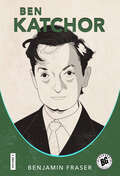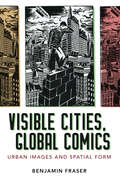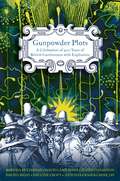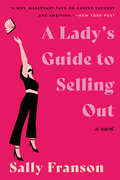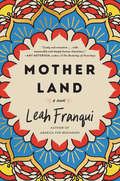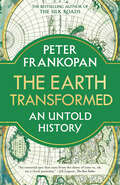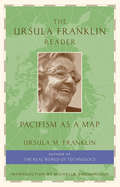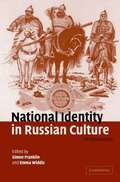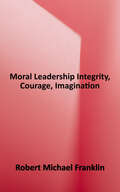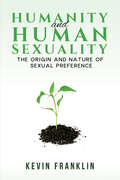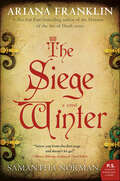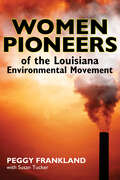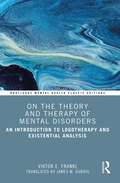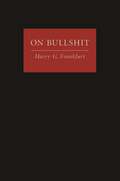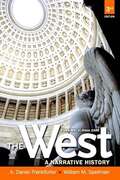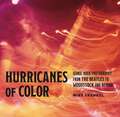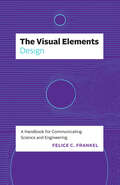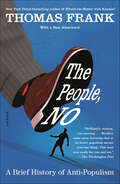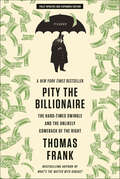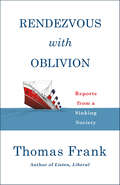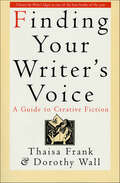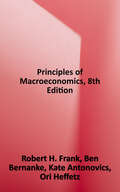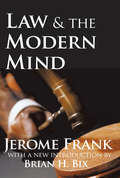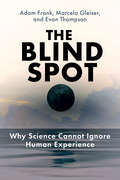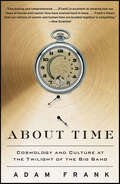- Table View
- List View
Ben Katchor (Biographix #2)
by Benjamin FraserThe recipient of a 2000 MacArthur fellowship, Ben Katchor (b. 1951) is a beloved comics artist with a career spanning four decades. Published in indie weeklies across the United States, his comics are known for evoking the sensorium of the modern metropolis. As part of the Biographix series edited by Frederick Luis Aldama, Ben Katchor offers scholars and fans a thorough overview of the artist’s career from 1988 to 2020. In some of his early strips published in the 1980s in the New York Press and Forward, Katchor introduced one of his quintessential characters, Julius Knipl, a real estate photographer. By crafting Knipl as an urban flâneur prone to wandering, Katchor was able to variously demonstrate his absurd humor and linguistic whimsy alongside narratives packed with social critique. Three volumes collecting the Julius Knipl strips, Julius Knipl, Real Estate Photographer; Cheap Novelties: The Pleasures of Urban Decay; and The Beauty Supply District, helped cement Katchor as a distinguished comics artist and social commentator. Later works, such as The Cardboard Valise, Hand-Drying in America, and The Dairy Restaurant, have diversified his comics legacy. Rooted in close analyses of the artist’s numerous series and collections, each chapter in Ben Katchor is dedicated to a distinct aspect of the urban experience. Individual pages from Katchor’s work depict not only the visual, but also the auditory, tactile, and olfactory dimensions of life in the city.
Visible Cities, Global Comics: Urban Images and Spatial Form
by Benjamin FraserCHOICE Outstanding Academic Title for 2020More and more people are noticing links between urban geography and the spaces within the layout of panels on the comics page. Benjamin Fraser explores the representation of the city in a range of comics from across the globe. Comics address the city as an idea, a historical fact, a social construction, a material-built environment, a shared space forged from the collective imagination, or as a social arena navigated according to personal desire. Accordingly, Fraser brings insights from urban theory to bear on specific comics. The works selected comprise a variety of international, alternative, and independent small-press comics artists, from engravings and early comics to single-panel work, graphic novels, manga, and trading cards, by artists such as Will Eisner, Tsutomu Nihei, Hariton Pushwagner, Julie Doucet, Frans Masereel, and Chris Ware. In the first monograph on this subject, Fraser touches on many themes of modern urban life: activism, alienation, consumerism, flânerie, gentrification, the mystery story, science fiction, sexual orientation, and working-class labor. He leads readers to images of such cities as Barcelona, Buenos Aires, London, Lyon, Madrid, Montevideo, Montreal, New York, Oslo, Paris, São Paolo, and Tokyo. Through close readings, each chapter introduces readers to specific comics artists and works and investigates a range of topics related to the medium’s spatial form, stylistic variation, and cultural prominence. Mainly, Fraser mixes interest in urbanism and architecture with the creative strategies that comics artists employ to bring their urban images to life.
Gunpowder Plots: A Celebration of 400 Years of Bonfire Night
by Antonia Fraser Brenda Buchanan David Cannadine David Cressy Justin Champion Mike Jay Pauline Croft400 years ago this November the most ambitious and extraordinary plot ever conceived in this country came close to success: the attempt by Guy Fawkes and his fellow conspirators to destroy in a single, annihilating blast the entire British ruling class and royal family.This book draws on the expertise of different writers to bring to life the immense implications of the Plot and the strange way they have echoed down to us over four centuries in what remains the quintessential English festival. Pauline Croft writes about the amazing plot itself and the anxious, unstable world of Jacobean Britain, Antonia Fraser imagines a world in which the plot had succeeded, Justin Champion dramatizes the national emergency that followed the plot's discovery and its savage anti-Catholicism, David Cressy traces how Bonfire Night has been celebrated since its inception as a holiday, Mike Jay focuses on the most famous and enduring rituals held each year at Lewes and Brenda Buchanan offers a wonderful history of fireworks in Britain.
A Lady's Guide to Selling Out: A Novel
by Sally FransonWith “elements of The Bold Type, Mad Men, and The Devil Wears Prada” (Entertainment Weekly), a young woman navigates a tricky twenty-first-century career—and the trickier question of who she wants to be—in this savagely wise debut novel.At 28, Casey Pendergast is not where she thought she’d be. Sure, she’s killing it at her high-paying advertising job, but when she thinks about the idealistic English major she used to be, she can’t help the nagging feeling that perhaps her best friend Susan is right – Casey is a sellout who’s traded her dreams for a high-rise condominium, expense account, and designer handbags.When her boss assigns her to a lucrative new campaign to lure acclaimed authors into becoming content creators for corporations, Casey doubts that her literary idols will buy into this particular brand of capitalism. But determined to give it her best shot, she begins her trek across America, only to find herself stunned by how easily these writers agree to compromise their work and integrity in exchange for some extra cash. As she grapples with her own conscience, and falls in love with one of the authors she’s courting, Casey begins to question just how much she’s willing to sacrifice to chase material success.A witty and razor-sharp coming of age story perfect for our time, A Lady’s Guide to Selling Out is a winning debut novel about a young woman navigating career, love, and friendships, all while redefining success on her own terms and figuring out who she really wants to be.
Mother Land: A Novel
by Leah Franqui“Lively and evocative, Mother Land is a deftly crafted exploration of identity and culture, with memorable and deeply human characters who highlight how that which makes us different can ultimately unite us.”—Amy Myerson, author of The Bookshop of Yesterdays and The ImperfectsFrom the critically acclaimed author of America for Beginners, a wonderfully insightful, witty, and heart-piercing novel, set in Mumbai, about an impulsive American woman, her headstrong Indian mother-in-law, and the unexpected twists and turns of life that bond them.When Rachel Meyer, a thirtysomething foodie from New York, agrees to move to Mumbai with her Indian-born husband, Dhruv, she knows some culture shock is inevitable. Blessed with a curious mind and an independent spirit, Rachel is determined to learn her way around the hot, noisy, seemingly infinite metropolis she now calls home. But the ex-pat American’s sense of adventure is sorely tested when her mother-in-law, Swati, suddenly arrives from Kolkata—a thousand miles away—alone, with an even more shocking announcement: she’s left her husband of more than forty years and moving in with them. Nothing the newlyweds say can budge the steadfast Swati, and as the days pass, it becomes clear she is here to stay—an uneasy situation that becomes more difficult when Dhruv is called away on business. Suddenly these two strong-willed women from such very different backgrounds, who see life so differently, are alone together in a home that each is determined to run in her own way—a situation that ultimately brings into question the very things in their lives that had seemed perfect and permanent . . . with results neither of them expect.Heartfelt, charming, deeply insightful and wise, Mother Land introduces us to two very different women from very different cultures . . . who maybe aren’t so different after all.
The Earth Transformed: An Untold History
by Peter FrankopanA NEW YORKER BEST BOOK OF THE YEAR • A revolutionary new history that reveals how climate change has dramatically shaped the development—and demise—of civilizations across time*The ebook edition now includes endnotes. Anyone who purchased the book previously can re-download this updated edition and access the notes.* Global warming is one of the greatest dangers mankind faces today. Even as temperatures increase, sea levels rise, and natural disasters escalate, our current environmental crisis feels difficult to predict and understand. But climate change and its effects on us are not new. In a bold narrative that spans centuries and continents, Peter Frankopan argues that nature has always played a fundamental role in the writing of history. From the fall of the Moche civilization in South America that came about because of the cyclical pressures of El Niño to volcanic eruptions in Iceland that affected Egypt and helped bring the Ottoman empire to its knees, climate change and its influences have always been with us. Frankopan explains how the Vikings emerged thanks to catastrophic crop failure, why the roots of regime change in eleventh-century Baghdad lay in the collapse of cotton prices resulting from unusual climate patterns, and why the western expansion of the frontiers in North America was directly affected by solar flare activity in the eighteenth century. Again and again, Frankopan shows that when past empires have failed to act sustainably, they have been met with catastrophe. Blending brilliant historical writing and cutting-edge scientific research, The Earth Transformed will radically reframe the way we look at the world and our future.
The Ursula Franklin Reader: Pacifism as a Map
by Ursula FranklinFeminist, educator, Quaker, and physicist, Ursula Franklin has long been considered one of Canada’s foremost advocates and practitioners of pacifism. The Ursula Franklin Reader: Pacifism as a Map is a comprehensive collection of her work, and demonstrates subtle, yet critical, linkages across a range of subjects: the pursuit of peace and social justice, theology, feminism, environmental protection, education, government, and citizen activism. This thoughtful collection, drawn from more than four decades of research and teaching, brings readers into an intimate discussion with Franklin, and makes a passionate case for how to build a society centered around peace.
National Identity In Russian Culture: An Introduction
by Simon Franklin Emma WiddisThe question of national identity has long been a vexing one in Russia, and is particularly pertinent in the post-Soviet period. Designed for students of Russian literature, culture and history, this collection of essays explores aspects of national identity in Russian culture from medieval times to the present.
Moral Leadership: Integrity, Courage, Imagination
by Robert Michael Franklin"A public intellectual and former president of Morehouse College offers reflections on the meaning of moral leadership"-- Provided by publisher.
Humanity and Human Sexuality: The Origin and Nature of Sexual Preference
by Kevin FranklinIn Humanity and Human Sexuality: The Origin and Nature of Sexual Preference, Dr. Kevin Franklin embarks on an extraordinary exploration of the human being, of mind, and their potential. Delving deep into themes of confusion and disorder, he unveils how a ‘trickster-mind’ can hinder an individual’s true potential for life and freedom. Drawing from his own profound experiences of childhood psychosis, which once seemed to destine him for a life overshadowed by schizophrenia and the threat of early suicide, Dr. Franklin defies expectations. This book ventures beyond traditional boundaries to examine the metaphysical aspects of psychological order, offering a unique perspective on the often-misunderstood concepts of societal and psychological disorders. Dr. Franklin’s insights extend into a scientific demonstration of the innate origins and nature of both heterosexual and homosexual preferences. Humanity and Human Sexuality: The Origin and Nature of Sexual Preference illuminates various fields - Philosophy, Religion, History, Science, Society, and Psychology - offering a revolutionary viewpoint on these disciplines. It challenges long-held beliefs and misconceptions, particularly in the realms of sexual identity, the gender and transgender discussion, and the complex relationship between religion and science. Structured in two parts, the book first deconstructs the mythology of sexual identity, before reconstructing a comprehensive understanding of human sexuality. It seeks to resolve some of humanity’s most pressing issues: the lack of human compassion, the intricacies of gender identity, and the historical tensions between religious beliefs and scientific understanding. This book is an essential read for anyone seeking a deeper understanding of the origins and nature of sexual preference and identity, and the broader implications for society.
The Siege Winter: A Novel
by Ariana Franklin Samantha NormanA powerful historical novel by the late Ariana Franklin and her daughter Samantha Norman, The Siege Winter is a tour de force mystery and murder, adventure and intrigue, a battle for a crown, told by two courageous young women whose fates are intertwined in twelfth century England’s devastating civil war.1141. England is engulfed in war as King Stephen and his cousin, the Empress Matilda, vie for the crown. In this dangerous world, not even Emma, an eleven-year-old peasant, is safe. A depraved monk obsessed with redheads kidnaps the ginger-haired girl from her village and leaves her for dead. When an archer for hire named Gwyl finds her, she has no memory of her previous life. Unable to abandon her, Gwyl takes the girl with him, dressing her as a boy, giving her a new name—Penda—and teaching her to use a bow. But Gwyn knows that the man who hurt Penda roams free, and that a scrap of evidence she possesses could be very valuable.Gwyl and Penda make their way to Kenilworth, a small but strategically important fortress that belongs to fifteen-year-old Maud. Newly wedded to a boorish and much older husband after her father’s death, the fierce and determined young chatelaine tempts fate and Stephen’s murderous wrath when she gives shelter to the empress.Aided by a garrison of mercenaries, including Gwyl and his odd red-headed apprentice, Maud will stave off Stephen’s siege for a long, brutal winter that will bring a host of visitors to Kenilworth—kings, soldiers . . . and a sinister monk with deadly business to finish.
Women Pioneers of the Louisiana Environmental Movement
by Peggy FranklandWomen Pioneers of the Louisiana Environmental Movement provides a window into the passion and significance of thirty-eight committed individuals who led a grassroots movement in a socially conservative state. The book is comprised of oral history narratives in which women activists share their motivation, struggles, accomplishments, and hard-won wisdom. Additionally interviews with eight men, all leaders who worked with or against the women, provide more insight into this rich--and also gendered--history.The book sheds light on Louisiana and America's social and political history, as well as the national environmental movement in which women often emerged to speak for human rights, decent health care, and environmental protection. By illuminating a crucial period in Louisiana history, the women tell how "environmentalism" emerged within a state already struggling with the dual challenges of adjusting to the civil rights movement and the growing oil boom.Peggy Frankland, an environmental activist herself since 1982, worked with a team of interviewers, especially those trained at Louisiana State University's T. Harry Williams Center for Oral History. Together they interviewed forty women pioneers of the state environmental movement. Frankland's work also was aided by a grant from the Louisiana Endowment for the Humanities. In this compilation, she allows the women's voices to provide a clear picture of how their smallest actions impacted their communities, their families, and their way of life. Some experiences were frightening, some were demeaning, and many women were deeply affected by the individual persecution, ridicule, and scorn their activities brought. But their shared victories reveal the positive influence their activism had on the lives of loved ones and fellow citizens.
On the Theory and Therapy of Mental Disorders: An Introduction to Logotherapy and Existential Analysis (Routledge Mental Health Classic Editions)
by Viktor E. FranklThis Classic Edition of On the Theory and Therapy of Mental Disorders: An Introduction to Logotherapy and Existential Analysis sees Viktor E. Frankl, bestselling author and founder of logotherapy, introduce his key theories and apply them to work with patients exhibiting symptoms of neurosis.James M. DuBois’ translation of Frankl’s Theorie und Therapie der Neurosen allows English readers to experience this essential text on logotherapy in an invigorating new light. DuBois also provides a new Preface to the book, highlighting the importance of both the original volume and Frankl’s work at large, and framing it within contemporary psychotherapy and psychoanalysis. Throughout the book, Frankl uses his unique logotherapeutic approach to analyse neuroses and their impact. He looks in turn at how neuroses may be informed by psychoses, somatic disorders, and the mental implications of being diagnosed with a physical medical condition, as well as potential psychological, spiritual, and societal causes of neuroses.Masterfully translated and thoroughly annotated, this volume brings Frankl’s trailblazing theories into the 21st century and will be of great interest to psychiatrists and psychotherapists alike.
On Bullshit
by Harry G. FrankfurtThe #1 New York Times bestseller that explains why bullshit is far more dangerous than lyingOne of the most salient features of our culture is that there is so much bullshit. Everyone knows this. Each of us contributes his share. But we tend to take the situation for granted. Most people are rather confident of their ability to recognize bullshit and to avoid being taken in by it. So the phenomenon has not aroused much deliberate concern. We have no clear understanding of what bullshit is, why there is so much of it, or what functions it serves. And we lack a conscientiously developed appreciation of what it means to us. In other words, as Harry Frankfurt writes, "we have no theory."Frankfurt, one of the world's most influential moral philosophers, attempts to build such a theory here. With his characteristic combination of philosophical acuity, psychological insight, and wry humor, Frankfurt proceeds by exploring how bullshit and the related concept of humbug are distinct from lying. He argues that bullshitters misrepresent themselves to their audience not as liars do, that is, by deliberately making false claims about what is true. In fact, bullshit need not be untrue at all.Rather, bullshitters seek to convey a certain impression of themselves without being concerned about whether anything at all is true. They quietly change the rules governing their end of the conversation so that claims about truth and falsity are irrelevant. Frankfurt concludes that although bullshit can take many innocent forms, excessive indulgence in it can eventually undermine the practitioner's capacity to tell the truth in a way that lying does not. Liars at least acknowledge that it matters what is true. By virtue of this, Frankfurt writes, bullshit is a greater enemy of the truth than lies are.
The West: A Narrative History Since 1400, Volume 2
by A. Daniel Frankforter William SpellmanThe book students will read: Concise. Relevant. Accessible. The West: A Narrative History is a concise but not abridged introduction to the West, encompassing all cultures that trace their ancestry to the ancient Mediterranean world. It is not a reduced version of a larger study, but a full narrative of the West written concisely. This learning program is built around a Key Question in every chapter, a feature that shows students why western civilization is relevant for them. Students will discover the key questions that define the past are in many ways the same key questions of today. Since students often see conflict between a Christian “West” and an Islamic “East” in today’s society, the authors highlight the ongoing role the Middle East has played in shaping the West. Students will understand the links between people of the West and those in other regions. The West is an accessible program available in several formats to give instructors and students more choices and more ways to save. With the release of the 3rd edition, The West becomes an integrated program tied closely to the new MyHistoryLab.
Hurricanes of Color: Iconic Rock Photography from the Beatles to Woodstock and Beyond (American Music History)
by Mike FrankelIn 1964, fifteen-year-old Mike Frankel found himself among professional photojournalists covering a Beatles concert during the band’s first tour in the United States. A few years later, he was a regular photographer at the Fillmore East, a storied venue in classic rock. And in 1969, he was onstage at Woodstock, documenting one of the most important events in American music history.Featuring Frankel’s stunning photographs of nearly every major rock figure from the 1960s and ’70s—including Led Zeppelin, Pink Floyd, the Rolling Stones, Janis Joplin, and the Grateful Dead—as well as many unpublished images of the Beatles, Hurricanes of Color chronicles an extraordinary moment. Frankel, who was for a time a personal photographer for Jefferson Airplane and Hot Tuna, developed an innovative style—one that layered images with multiple exposures to capture the spirit of the music of the era and the experience of listening to the bands live.A must-have for fans of classic rock, this is a spectacular and profound collection of photography that complements the music of the world’s biggest performers.
The Visual Elements—Design: A Handbook for Communicating Science and Engineering (The Visual Elements)
by Felice C. FrankelWith insights and examples from designers at publications from Nature to the New York Times, an essential guide to creating figures and presentations. In this short handbook, award-winning science communicator Felice C. Frankel offers a quick guide for scientists and engineers who want to share—and better understand—their research by designing compelling graphics for journal submissions, grant applications, presentations, and posters. Like all the books in the Visual Elements series, this handbook is also a training tool for researchers. Distilling her celebrated books and courses to the essentials, Frankel shows scientists and engineers, from students to primary investigators, the importance of thinking visually. This crucial volume in the Visual Elements series offers a wealth of engaging design examples. Case studies and advice from designers at prestigious publications and researchers’ own before-and-after examples show how even the smallest changes—to color, type, composition, and layering—can greatly improve communication. Ideal for researchers who want a foothold for presenting and preparing their work for everything from conferences to publications, the book explains the steps for creating a concise and communicative graphic to highlight the most important aspects of research—and to clarify researchers’ own thinking. The resulting book is an essential element of any scientist’s, engineer’s, or designer’s library.
The People, No: A Brief History of Anti-Populism
by Thomas FrankFrom the prophetic author of the now-classic What’s the Matter with Kansas? and Listen, Liberal, an eye-opening account of populism, the most important—and misunderstood—movement of our time.Rarely does a work of history contain startling implications for the present, but in The People, No Thomas Frank pulls off that explosive effect by showing us that everything we think we know about populism is wrong. Today “populism” is seen as a frightening thing, a term pundits use to describe the racist philosophy of Donald Trump and European extremists. But this is a mistake. The real story of populism is an account of enlightenment and liberation; it is the story of American democracy itself, of its ever-widening promise of a decent life for all. Taking us from the tumultuous 1890s, when the radical left-wing Populist Party—the biggest mass movement in American history—fought Gilded Age plutocrats to the reformers’ great triumphs under Franklin Roosevelt and Harry Truman, Frank reminds us how much we owe to the populist ethos. Frank also shows that elitist groups have reliably detested populism, lashing out at working-class concerns. The anti-populist vituperations by the Washington centrists of today are only the latest expression.Frank pummels the elites, revisits the movement’s provocative politics, and declares true populism to be the language of promise and optimism. The People, No is a ringing affirmation of a movement that, Frank shows us, is not the problem of our times, but the solution for what ails us.
Pity the Billionaire: The Hard-Times Swindle and the Unlikely Comeback of the Right
by Thomas FrankFrom the bestselling author of What's the Matter with Kansas?, a wonderfully insightful and sardonic look at why the worst economy since the 1930s has brought about the revival of conservatismEconomic catastrophe usually brings social protest and demands for change—or at least it's supposed to. But when Thomas Frank set out in 2009 to look for expressions of American discontent, all he could find were loud demands that the economic system be made even harsher on the recession's victims and that society's traditional winners receive even grander prizes. The American Right, which had seemed moribund after the election of 2008, was strangely reinvigorated by the arrival of hard times. The Tea Party movement demanded not that we question the failed system but that we reaffirm our commitment to it. Republicans in Congress embarked on a bold strategy of total opposition to the liberal state. And TV phenom Glenn Beck demonstrated the commercial potential of heroic paranoia and the purest libertarian economics.In Pity the Billionaire, Frank, the great chronicler of American paradox, examines the peculiar mechanism by which dire economic circumstances have delivered wildly unexpected political results. Using firsthand reporting, a deep knowledge of the American Right, and a wicked sense of humor, he gives us the first full diagnosis of the cultural malady that has transformed collapse into profit, reconceived the Founding Fathers as heroes from an Ayn Rand novel, and enlisted the powerless in a fan club for the prosperous. The understanding Frank reaches is at once startling, original, and profound.
Rendezvous with Oblivion: Reports from a Sinking Society
by Thomas FrankFrom the acclaimed author of Listen, Liberal and What’s the Matter with Kansas, a scathing collection of his incisive commentary on our cruel times—perfect for this political momentWhat does a middle-class democracy look like when it comes apart? When, after forty years of economic triumph, America’s winners persuade themselves that they owe nothing to the rest of the country?With his sharp eye for detail, Thomas Frank takes us on a wide-ranging tour through present-day America, showing us a society in the late stages of disintegration and describing the worlds of both the winners and the losers—the sprawling mansion districts as well as the lives of fast-food workers.Rendezvous with Oblivion is a collection of interlocking essays examining how inequality has manifested itself in our cities, in our jobs, in the way we travel—and of course in our politics, where in 2016, millions of anxious ordinary people rallied to the presidential campaign of a billionaire who meant them no good.These accounts of folly and exploitation are here brought together in a single volume unified by Frank’s distinctive voice, sardonic wit, and anti-orthodox perspective. They capture a society where every status signifier is hollow, where the allure of mobility is just another con game, and where rebellion too often yields nothing.For those who despair of the future of our country and of reason itself, Rendezvous with Oblivion is a booster shot of energy, reality, and moral outrage.
Finding Your Writer's Voice: A Guide to Creative Fiction
by Thaisa Frank Dorothy WallAn illuminating guide to finding one's most powerful writing tool, Finding Your Writer's Voice helps writers learn to hear the voices that are uniquely their own. Mixing creative inspiration with practical advice about craft, the book includes chapters on:Accessing raw voiceListening to voices of childhood, public and private voices, and colloquial voicesWorking in first and third person: discovering a narrative personaUsing voice to create charactersShaping one's voice into the form of a storyReigniting the energy of voice during revision
Principles of Macroeconomics
by Robert H. Frank Ben Bernanke Kate Antonovics Ori HeffetzPrinciples of Macroeconomics focuses on seven core principles to produce economic naturalists through active learning. By eliminating overwhelming detail and focusing on core principles, students from all backgrounds are able to gain a deeper understanding of economics. Focused on helping students become "economic naturalists," people who employ basic economic principles to understand and explain what they observe in the world around them. COVID-19 pandemic content, analysis, and examples further engage students. <p><p> With engaging questions, explanations, exercises and videos, the authors help students relate economic principles to a host of everyday experiences such as going to the ATM or purchasing airline tickets. Throughout this process, the authors encourage students to become "economic naturalists." Author developed Learning Glass concept overview videos and Worked Problem videos give students an overview of challenging and important concepts. <p><p> With new videos and engagement tools in Connect, like Application-Based Activities, alongside SmartBook's adaptive reading experience, the 8th edition enables instructors to spend class time engaging, facilitating, and answering questions instead of lecturing on the basics.
Law and the Modern Mind
by Jerome Frank Brian H. BixLaw and the Modern Mind first appeared in 1930 when, in the words of Judge Charles E. Clark, it "fell like a bomb on the legal world." In the generations since, its influence has grown-today it is accepted as a classic of general jurisprudence.The work is a bold and persuasive attack on the delusion that the law is a bastion of predictable and logical action. Jerome Frank's controversial thesis is that the decisions made by judge and jury are determined to an enormous extent by powerful, concealed, and highly idiosyncratic psychological prejudices that these decision-makers bring to the courtroom.
The Blind Spot: Why Science Cannot Ignore Human Experience
by Adam Frank Marcelo Gleiser Evan ThompsonA compelling argument for including the human perspective within science, and for how human experience makes science possible.&“This is by far the best book I've read this year.&” —Michael Pollan, Professor of the Practice of Non-fiction, Harvard University; #1 New York Times bestselling author&“(A) stimulating manifesto for changing the way we look at things.&” —Wall Street JournalIt&’s tempting to think that science gives us a God&’s-eye view of reality. But we neglect the place of human experience at our peril. In The Blind Spot, astrophysicist Adam Frank, theoretical physicist Marcelo Gleiser, and philosopher Evan Thompson call for a revolutionary scientific worldview, where science includes—rather than ignores or tries not to see—humanity&’s lived experience as an inescapable part of our search for objective truth. The authors present science not as discovering an absolute reality but rather as a highly refined, constantly evolving form of human experience. They urge practitioners to reframe how science works for the sake of our future in the face of the planetary climate crisis and increasing science denialism.Since the dawn of the Enlightenment, humanity has looked to science to tell us who we are, where we come from, and where we&’re going, but we&’ve gotten stuck thinking we can know the universe from outside our position in it. When we try to understand reality only through external physical things imagined from this outside position, we lose sight of the necessity of experience. This is the Blind Spot, which the authors show lies behind our scientific conundrums about time and the origin of the universe, quantum physics, life, AI and the mind, consciousness, and Earth as a planetary system. The authors propose an alternative vision: scientific knowledge is a self-correcting narrative made from the world and our experience of it evolving together. To finally &“see&” the Blind Spot is to awaken from a delusion of absolute knowledge and to see how reality and experience intertwine.The Blind Spot goes where no science book goes, urging us to create a new scientific culture that views ourselves both as an expression of nature and as a source of nature&’s self-understanding, so that humanity can flourish in the new millennium.
About Time: Cosmology and Culture at the Twilight of the Big Bang
by Adam FrankAn expert “ponders fresh ideas in cosmology, such as string theory and the multi-verse, and how the human perception of time will change in the future” (Washington Post).The Big Bang is all but dead, and we do not yet know what will replace it. Our lives are about to be dramatically shaken again—as altered as they were with the invention of the clock, the steam engine, the railroad, the radio and the Internet.Astrophysicist Adam Frank explains how the texture of our lives changes along with our understanding of the universe’s origin. Since we awoke to self-consciousness fifty thousand years ago, our lived experience of time—from hunting and gathering to the development of agriculture to the industrial revolution to the invention of Outlook calendars—has been transformed and rebuilt many times. But the latest theories in cosmology—time with no beginning, parallel universes, eternal inflation—are about to send us in a new direction.Time is both our grandest and most intimate conception of the universe. Many books tell the story, recounting the progress of scientific cosmology. Frank tells the story of humanity’s deepest question—when and how did everything begin?—alongside the story of how human beings have experienced time. He looks at the way our engagement with the world—our inventions, our habits and more—has allowed us to discover the nature of the universe and how those discoveries, in turn, inform our daily experience.“An eloquent book.” —Nature“A phenomenal blend of science and cultural history.” —Kirkus Reviews, starred review“This will fascinate anyone curious about the nexus of astronomy and history and, of course, time. Recommended.” —Library Journal
